Hades is, for almost too many reasons to count, some of Supergiant Games’ best work. It carries all the hallmarks that make their games great: a strong character-focused narrative, excellent gameplay, and outstanding visual and audio design.
Then there are the thousand and one little details that set it apart, from small animations, secrets places, humorous touches, and much more.
The years of Early Access and community feedback have done wonders Hades, as well. Some of its more mundane or annoying features are long gone, replaced with more ways to feel powerful and have an amazing time. Better yet, the value for the money is far beyond anything Supergiant has put out before. My first clear took about 15 hours, but I sense at least 60 or 70 hours more before I’ve seen everything the game has to offer.
Hades is all substance, and there’s no other game in the roguelite genre that tops it.
Hades Review: Hell Was Never So Much Fun
You will grow to love the characters of Hades because they all play an integral part in the gameplay in some fashion.
Every inch of the game you play tells some part of the story. The weapons, the abilities, the environments, the enemies — everything paints a tapestry that is Hades’ vast, procedurally generated Underworld.
You play as Zagreus, the son of the titular God of the Dead, Hades, and your quest is simple: get out. Zagreus wants to be rid of his abusive father and discover the world outside the walls of his house.
To that end, he enlists the help of the Olympian gods as he fights his way to their home on Olympus. He has the support of everyone in the House of Hades, save for its head, Hades himself, whose motives remain as mysterious as he is curmudgeonly.
It’s a fine enough goal for a game: go to a place, kill some dudes, escape. The player’s impetus is Zagreus’ impetus, and in the first few runs, you quickly bond with Zagreus. His quest becomes yours if only to overcome the challenges the Underworld puts before you. You want to reach Olympus as much as he does, though your reasoning may differ.
Then the game pulls back the curtain. Character motivations become more opaque, and the truth blurs. Your allies show they know far more than they’ve ever told. Your enemies aren’t so clear cut.
What Zagreus believes is slowly chipped into nothing until the real goal comes into view, and what was once a pretty action game with excellent voice acting and music becomes something of a personal quest, where what you want and what you need diverge entirely.
You will grow to love the characters of Hades because they all play an integral part in the gameplay in some fashion. Then, when you return to the hub area, the House of Hades, what you learned in the Underworld comes home to roost. Everything Zagreus, and therefore you, do ripples through the game.
An Action Game Like Few Others
These ripples even apply to the weapons and abilities you use to make your way toward the surface. There are six weapon types, and each of them has a unique playstyle. They’re all incredibly fun on their own, but Supergiant went the extra mile and ensured that, as you gain powers each run, you’ll find it hard to make the same build twice.
A shield run, for instance, could focus almost entirely on defense, evasion, or all-out attack, and each of those paths is equally viable. Then, on your next outing, you might choose the actual assault rifle and find that everything you thought you knew about how to play Hades goes out the window. The same is true for the sword, bow, spear, and fists.
Build variety comes from more than just weapon upgrades. Every room you enter in Hades has a chance to offer a Boon from one of the 10 Greek gods, and these offer fantastical powers. Like the levels themselves, which ability you receive is random, and each time you have three to choose from. Creating a build in Hades, like any good roguelite, happens on the fly, as you make trade-offs and concessions toward a particular goal.
Even early on, especially once you have just a few upgrades under your belt, Zagreus gets powerful fast. You’ll tear through the initial mobs that once gave you trouble. Then, when you think you know what to expect, Hades throws a curveball. The boss or elite enemy you were expecting is nowhere to be seen, and the one you face challenges your perfect build in ways you could never expect.
Things become a game of cat and mouse as you try to outsmart the game through a clever combination of divine Boons and new strategies. What you think will dominate will fail. What seems useless saves you in a pinch.
That says nothing of the joy of the moment to moment gameplay, which is fast, chaotic, and gets the adrenaline pumping in the best way. You start with just enough mobility to get by, and learning how to maximize survivability is almost more fun than using the game’s powers themselves.
The core systems here — dash, attack, special attack, and dash attacks — seem simple enough on paper. Mastering them will see you win run after run, regardless of build.
A Treat for the Eyes and Ears
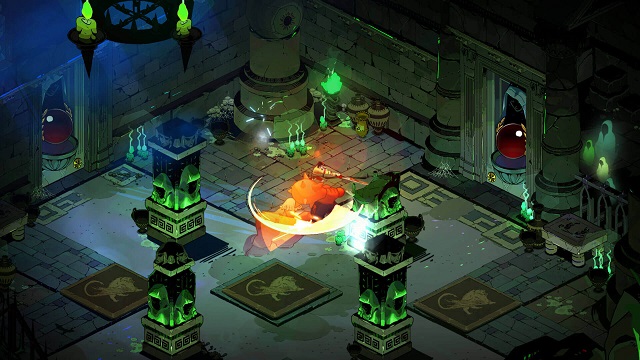
As great as the art direction is, the music is equally fantastic.
Hades is a beautiful game. Each environment is lovingly crafted with no expense spared toward giving every area a unique identity. The levels are all defined by a primary color that permeates its design. Tartarus, the opening level, is keyed to a deep, almost neon, green. Other levels are reds, teals, and purples.
The levels themselves are all procedurally generated, so no two arenas appear twice. This randomness has not stopped the artists from taking great care with each environment. Tartarus, again, is all gothic architecture, ruined hallways, and foreboding edifices. The green color always is present in some sense, either as a light source or as the color of the stones of the floor.
As great as the art direction is, the music is equally fantastic. Darren Korb’s soundtrack is a mix of acoustic instrumentation, driving basslines, and electronic melodies. Paired with vocals provided by Ashley Barrett, you will never walk a moment in Hades without having some serious ear candy.
The music, unlike the levels, is not procedural. Instead, it shifts between ambient and combat music and looping as the situation calls for. Important NPCs have their own themes, and there are a few poignant moments throughout the game that go into tear-jerker territory because of how the music swells and dips based on the emotions onscreen.
The only thing that could make it all better is if the environments themselves changed in some way based on the music, but that’s probably asking too much, even of Supergiant.
Quibbles
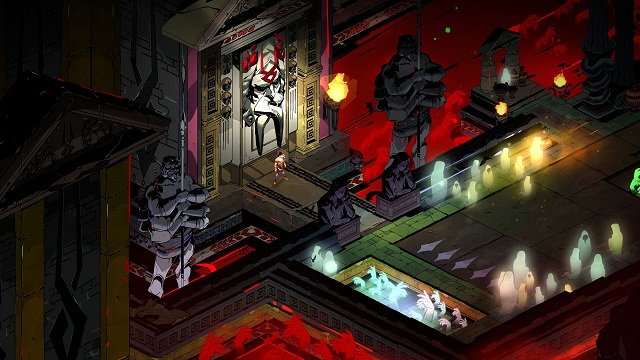
No game is perfect, and Hades is no exception. It is exceptional, of course, enough to earn such a high mark, but there are parts of the game that get in the way of enjoyment from time to time.
The first and most notable issue is the procedural generation itself. Entire runs can go down the drain because the Boons on offer don’t synergize properly, or the rolls are poor. You might run into an arena that’s too small for the enemies’ attacks, leaving you with no way to so much as wriggle.
There’s sometimes a bit of visual clutter as well. Every enemy and character stands out from the rest, but if there are a lot of them onscreen at once, it’s easy to lose Zagreus in the shuffle. His health will disappear shortly after that. Add in some light bullet hell elements, and the clash of primary colors goes from distracting to downright opaque.
In something of an unintentional nod to games like Destiny, quite a bit of Hades’ story and worldbuilding occur in a large and wordy set of lore books. They aren’t the focus of the game, of course, as the main narrative is all present without the codex. However, if you want the full story, you’ll be doing some reading.
Hades Review — The Bottom Line
Pros
- Top-quality story, gameplay, music, and art direction
- Hours and hours of excitement and adrenaline
- Plenty of humor and snark to keep you laughing
Cons
- Procedural generation sometimes gets in the way
- Some enemies can be more frustrating than fun to fight
- The occasional bit of visual clutter
Hades is everything great about video games in a single package. It has a moving, personal narrative, exciting gameplay, deep systems, and amazing music and aesthetics. It was already a great game when it came out in Early Access, but it’s come so far since then and is easily one of the best games of 2020, if not in the last few years.
There are a few minor things that can be grating, but they do almost nothing to mar the experience in the grand scheme.
Hades deserves your attention, your support, and more than a few hours of your time. If you like isometric action games, I guarantee you will have an absolute blast.
[Note: A PC copy of Hades was purchased on Steam by the reviewer.]

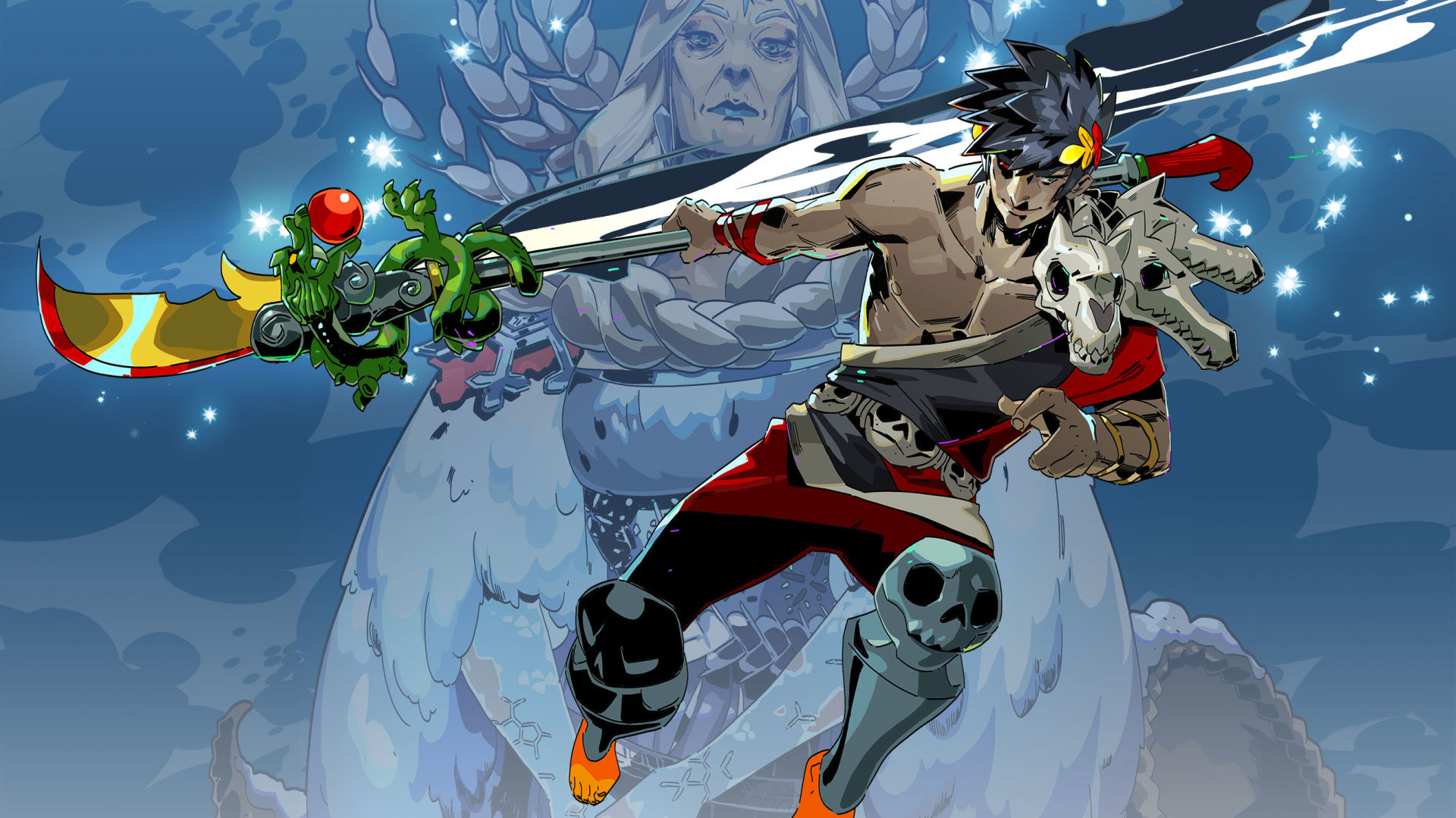
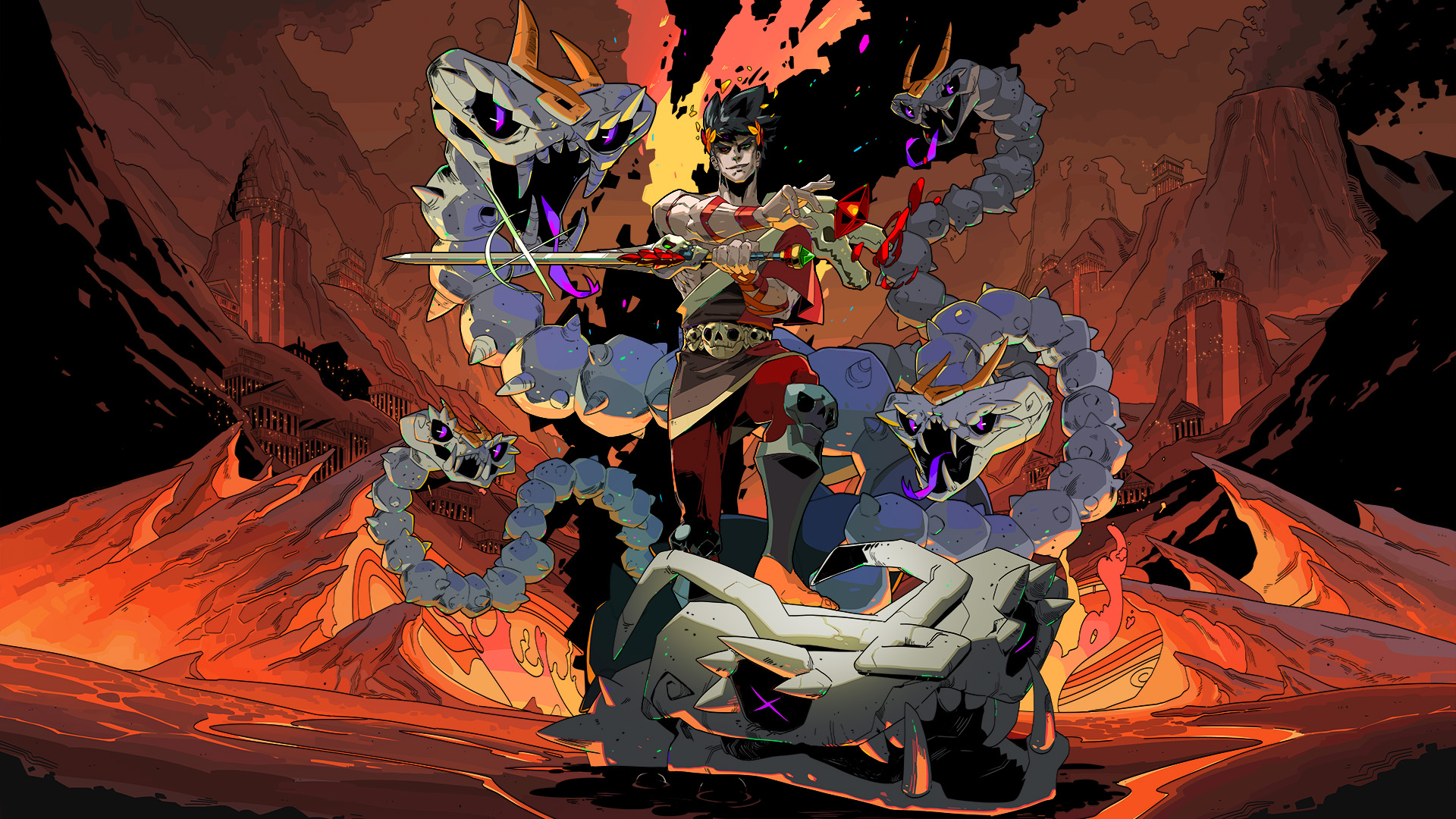
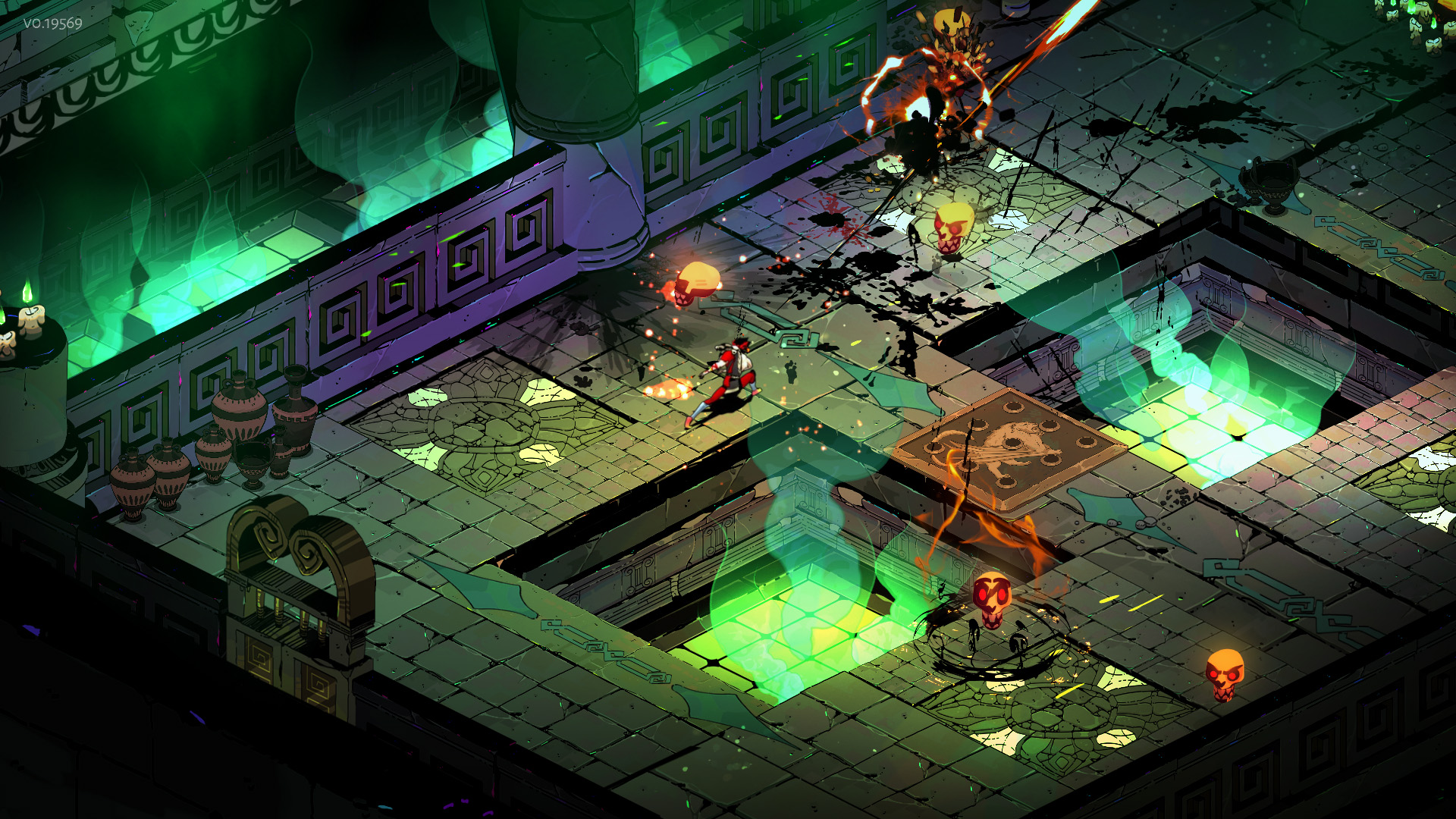
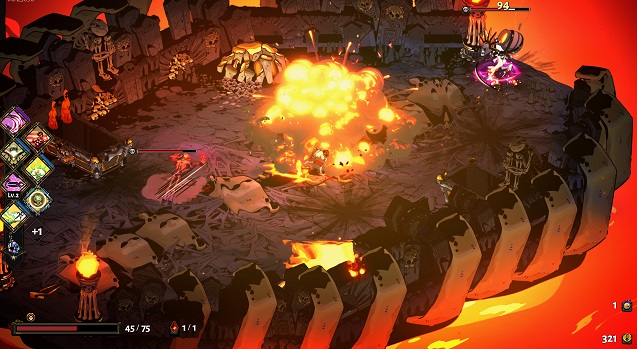





Published: Sep 23, 2020 09:50 pm